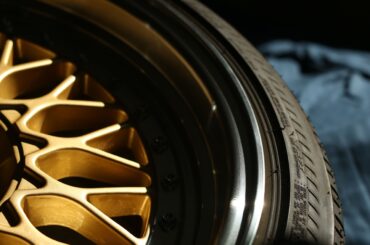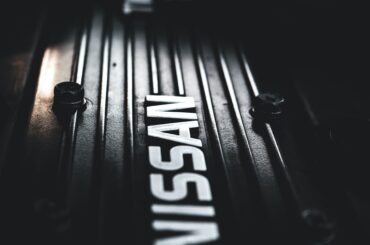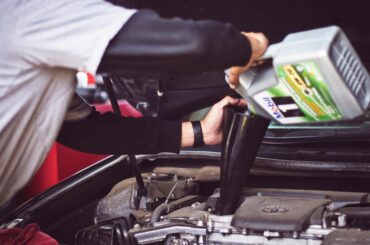When you turn the key in your car‘s ignition, the last thing you want is to experience an unsettling shaking or vibrating sensation. However, it’s common for some vehicles to exhibit this behavior during startup, only to run smoothly once they’re on the road. Understanding the reasons behind this perplexing issue is crucial for car owners and drivers alike. This article delves into the puzzling phenomenon of a car shaking during startup and aims to shed light on its common causes and potential solutions. So, let’s delve into the possible culprits behind this perplexing occurrence and find out how to safeguard our cars for the road ahead.
Question: car shakes when starting then runs fine
Contents
Understanding the Symptoms
When you start your car’s engine, you might notice an unsettling shaking or vibrating sensation, which can be concerning for any car owner. The shaking during startup is often more pronounced and noticeable compared to when the car is running normally. It may feel as though the entire vehicle is trembling, and the steering wheel, dashboard, or even the seats might vibrate.

However, the curious aspect of this issue is that once the car is fully running and has warmed up, the shaking mysteriously disappears, and the vehicle operates smoothly as if nothing was amiss. The engine runs without any signs of distress, and the car seems to return to its usual self.
Observing and diagnosing these symptoms promptly is of utmost importance. Ignoring the shaking during startup might seem tempting, especially when the car runs fine afterward. However, it could indicate an underlying problem that needs attention. Left unaddressed, such issues may worsen over time and lead to potential damage to critical components of the engine or other systems in the vehicle.
Being vigilant about these symptoms can help car owners identify and address any problems early on, preventing further complications and ensuring the car’s optimal performance and safety. By understanding the causes behind the shaking during startup, we can take proactive measures to safeguard our vehicles and enjoy a smoother driving experience in the long run.
Common Causes of Shaking During Startup
1. Engine Misfire:
An engine misfire occurs when one or more cylinders in the engine fail to ignite the air-fuel mixture correctly. This disruption in the combustion process can result in rough idling, shaking, and vibration during startup and while the engine is running.
Potential reasons for engine misfires include faulty spark plugs, ignition coils, fuel injectors, or sensors. Worn or damaged spark plugs may not provide a strong enough spark to ignite the fuel mixture, while malfunctioning ignition coils can lead to the irregular firing of the spark plugs. Additionally, clogged or malfunctioning fuel injectors may not deliver the proper amount of fuel, affecting the combustion process. Faulty sensors, such as the oxygen or mass airflow sensor, can cause misfires by providing inaccurate data to the engine control unit.
These issues may manifest during startup as a noticeable shudder or roughness in the engine. The engine may sound uneven, and the car might struggle to maintain a stable idle until it warms up.
2. Low Engine Temperature:
When a car’s engine is cold, the fluids, including engine oil and coolant, are more viscous, which can increase friction and vibration. As a result, the engine may shake more during startup until it reaches its optimal operating temperature.
The fluids become less dense as the engine warms up, and the components expand, allowing for smoother operation. The shaking typically subsides once the engine reaches its normal operating temperature, and the car runs more smoothly.
3. Engine Mounts:
Engine mounts are rubber or hydraulic components that secure the engine to the vehicle’s chassis and absorb vibrations produced by the engine’s operation. These mounts are crucial in dampening engine vibrations and ensuring a smoother ride.
Over time, engine mounts can wear out or become damaged due to constant engine movement and exposure to heat and road conditions. When engine mounts deteriorate, they may lose their ability to dampen vibrations, effectively leading to increased shaking during startup.
Potential signs of faulty engine mounts include excessive engine movement when revving the engine, clunking noises during acceleration or deceleration, or visible damage to the mounts.
Other Possible Causes and Solutions
1. Fuel System Issues:
Problems with the fuel system can significantly impact a car’s startup performance. A clogged fuel filter restricts fuel flow to the engine, leading to insufficient fuel supply during startup. Similarly, a weak fuel pump may struggle to deliver the required fuel pressure to the engine, resulting in rough idling and shaking.

To address these fuel system issues, regular maintenance is crucial. Car owners should follow the manufacturer’s recommended service intervals for fuel filter replacement and fuel system inspection. Suppose a clogged fuel filter or a weak fuel pump is identified as the cause of the shaking during startup. In that case, immediate replacement is necessary to restore proper fuel flow and ensure smooth engine operation.
2. Battery or Electrical Issues:
A weak battery or electrical problems can significantly influence a car’s startup behavior. A weak battery might not provide sufficient power to crank the engine effectively, leading to slow or hesitant starting and engine shaking during startup.
The alternator is vital in supplying power to the car’s electrical system and charging the battery while the engine runs. If the alternator is faulty or not functioning optimally, it can result in a drained battery, affecting startup performance.
To address battery and electrical issues, car owners should regularly inspect their batteries’ health and charge levels. Battery testing at regular intervals can help identify weak batteries that need replacement. Additionally, an electrical system inspection, including the alternator and starter, should be conducted to ensure proper functioning. If any issues are detected, prompt repairs or replacements should be undertaken to avoid further complications.
3. Exhaust System Problems:
A blocked or restricted exhaust system can lead to excessive vibrations during startup. When exhaust gases cannot flow freely due to a clogged catalytic converter, muffler, or exhaust pipe, the engine’s performance can be affected, causing shaking and rough idling during startup.
The exhaust system is crucial for the engine’s overall performance, as it helps to expel harmful gases and improve fuel efficiency. When exhaust system problems are suspected, it is essential to have the system inspected and repaired by a qualified mechanic. Clearing obstructions or replacing damaged components in the exhaust system can resolve the shaking issue and restore proper engine performance.
Diagnosing and Resolving the Issue
Experiencing car shaking during startup can be perplexing and concerning, but it’s crucial not to overlook the problem. Ignoring the symptoms could lead to more severe issues in the long run, potentially affecting the car’s performance and safety. To address the shaking effectively, consider the following step-by-step guide:
1. Seek Professional Assistance: The first and most important step is to seek professional help from a qualified mechanic or automotive technician. Their expertise and diagnostic tools can accurately identify the underlying cause of the shaking during startup. A thorough inspection of the engine, fuel system, electrical components, and exhaust system will be carried out to pinpoint the problem.
2. Describe the Symptoms: When you take your car to the mechanic, describe the shaking during startup and any other noticeable issues. Be specific about when the shaking occurs, how it feels, and whether it stops once the car runs normally. This information can aid the mechanic in narrowing down the potential causes.
3. Diagnostic Tests: The mechanic will conduct various diagnostic tests, such as scanning for error codes in the engine control module, checking the fuel pressure, inspecting the ignition system, and assessing the engine mounts and exhaust system. These tests will help identify any faulty components contributing to the problem.
4. Addressing Identified Issues: Once the mechanic identifies the root cause, they recommend necessary repairs or replacements. Depending on the issue, it may involve replacing spark plugs, ignition coils, fuel filters, engine mounts, or exhaust system components or addressing battery or electrical problems. Promptly addressing these issues will prevent further damage and ensure optimal performance.
5. Regular Maintenance: After resolving the issue, adhere to regular maintenance schedules for your vehicle. Regularly change the engine oil, inspect and replace air filters, conduct fuel system maintenance, and monitor the health of the battery and electrical system. Following the manufacturer’s maintenance recommendations will help prevent future problems and prolong the life of your car.
The car shakes when starting then runs fine.
In conclusion, car shaking during startup can be caused by several factors, including engine misfires, low engine temperature, faulty engine mounts, fuel system issues, battery or electrical problems, and exhaust system complications. Understanding these common causes is crucial for car owners to address the issue promptly and effectively.
Prompt diagnosis and repair are of utmost importance. Ignoring the shaking during startup may lead to more significant problems, affecting the car’s overall performance and safety. Seeking professional assistance from qualified mechanics and conducting thorough inspections can accurately identify the root cause and ensure proper resolution.

As responsible car owners, adopting a proactive approach towards maintaining our vehicles is essential. Regular maintenance, following recommended service schedules, and promptly addressing any issues can help prevent car shaking and other potential complications. By doing so, we can enjoy a smoother and more enjoyable driving experience while ensuring optimal performance and safety on the road.
Unleashing the Truth: Is Bumper as Good as Carfax in 2023?
What Are the Three Types of Towing? A Comprehensive Guide in 2023
Do Employees Get a Discount on Cars? Unlocking Perks in 2023






